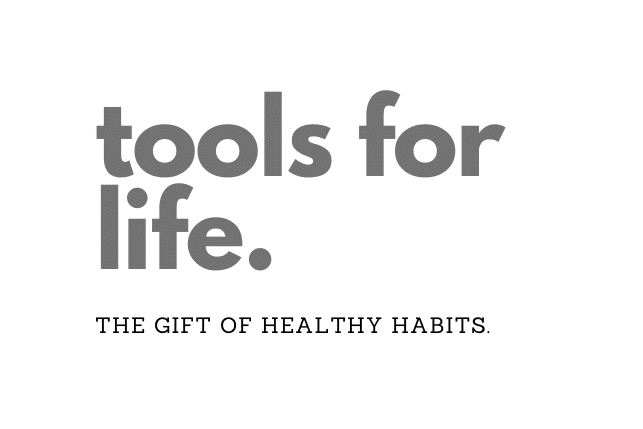
Our children’s personality traits are hardwired into their DNA. These traits make them who they are. As parents, we should do our best to foster pride and acceptance within our children, so that they may be proud of who they are.
When it comes to habits, however, these are 100% influenced by external factors. So, if we wish to instil some good habits in our children, we must do so from an early age and commit to role modelling what we want them to adopt.
Which habits are Important?
Every day, we run a schedule of habits, paying them none or very little attention. We perform many habit-based tasks on autopilot. We don’t have to run a sense check or decision filter across everything, which means that we can get on with life in a pretty efficient manner. But, these habits will have minimal impact on shaping our lives and, therefore, are not the habits on which we wish to focus.
If we want to set our kids up with habits that will support a life well-lived, we need to focus on what matters.
Align Your Focus with Your Family Values
Every family has a set of values by which they live. These values form the baseline from which behaviour hinges and we make choices and decisions.
As parents, we need to determine some focus areas that align with our values and will have the most significant impact on our children’s future, then create habits that bring these focus areas into play in our everyday lives.
Following this process will help your children adopt these habits and incorporate them into their lives more readily.
Examples of Focus Areas
Of course, every family will have different focus areas. Here we look at three broad examples to help paint a picture.
Healthy Eating Habits
Poor diet is a major contributing factor to many of the world’s major health issues. Establishing healthy eating habits in your children can prevent them from falling victim to preventable diseases.
It can be easier said than done, but if this is important to you, chances are, you are committed to teaching your children the value of making healthy choices as their default and not their norm. Serving up healthy dishes, involving them in food preparation and engaging in balanced discussions about the power of food and its connection to health are all fabulous ways of instilling the foundations of a habit.
Good Learning Habits
Teaching our kids to enjoy the process of learning, both at school and home, will help to set them up with a lifelong passion for learning and inquiry.
Reading, singing and playing educational games with babies and young children has been shown to have substantial long-term effects on their learning abilities. By developing a love of the learning process, the act of learning can become a natural and enjoyable habit rather than a forced effort.
Good Money Habits
Financial literacy is now widely taught as part of the national curriculum. Helping our children understand the value of money and the concept of earning and saving encourages them to develop a healthy relationship and respect for money and establish good money habits.
We can support these learnings at home by role modelling them in action. It is also essential to engage in open discussions about the many positive things you can achieve in life if you develop good money habits – achieving goals, supporting a worthy cause, and owning a home among them.
Create Smaller Habits to Support the End Goal
It’s all very well deciding on the habits we wish to instil. However, we must first identify our end goal, then develop a process that helps us achieve it. We are unlikely to achieve anything without a strategy. Creating a series of smaller achievable habits that support the end goal is an excellent solution.
If we take the example of healthy eating habits, it could look something like this;
- Habits we want to create
- Eating more vegetables
- Preparing healthy meals 3 x a week
- Carrying water bottles whenever we go out
- Habits we want to avoid
- Using fast food or junk food as a reward for good behaviour
- Eating in front of the television
- Using pre-packaged and processed foods
Making the New Habits Stick
James Clear, the author of Atomic Habits, suggests that we run the following four questions over any habit we wish to implement successfully.
- How can I make it obvious?
- How can I make it attractive?
- How can I make it easy?
- How can I make it satisfying?
To demonstrate how this may look in practice, let’s run those questions over the example of good money habits.
The goal is to help your kids avoid the debt trap as adults.
The desired habit is that they earn, save and spend their own pocket money from a young age.
- Make it obvious
- Use money boxes and coins rather than a bank account
- Keep the money box in their room so they can look at it whenever they like.
- Make it attractive
- Let the kids paint their money boxes.
- Let them choose what they are saving for and put a picture of it next to the money box.
- Make it easy
- Pay their pocket money in dollar coins or notes, so it’s highly tangible.
- Make it satisfying
- Let them donate some of their money to a charity
- Maybe match their savings for more significant purchases.
Following the process mapped out above can help you create some valuable life-long habits for your children and your family as a whole. Live the process daily until the habit forms as the status quo – you’ll be surprised at how quickly this will happens!
There’s nothing more powerful than collective action. When the collective action involves children and their parents, real magic can take place.
You’ve never had a more adoring audience, so take to the stage and lead by example. These habits will be the tools with which your children will build their lives. Create those tools with some quality stuff!
